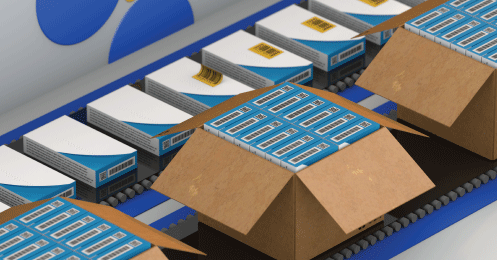Shipping errors? Poor inventory management? Multiple disparate systems? Data entry errors? If any of the above issues sound familiar, you’re not alone. These are some of the challenges faced by many start-up and small-mid size eCommerce businesses who lack proper software integration. While these issues may be magnified in larger businesses, they are common to organizations of all sizes and have led many companies to seek solutions through proper software.
When it comes to eCommerce businesses, a functioning, visually appealing website that makes for a good user experience is key to success. However, without proper back-end software to manage the processing and shipping of orders, in addition to back-office accounting functions, your business can quickly fall apart. This is where eCommerce integration comes into play. A website that is directly tied to back-end inventory and accounting ERP software will allow you to process sales orders and invoices, manage the picking, packing and shipping of orders, receive inventory, issue purchase orders, manage AR, AP and GL accounts, track customer communication, prepare reports and much more. Aside from the benefits to be gained from features offered with eCommerce integration, consider the following:
Scalability
The right ERP and eCommerce solution will scale with your business. Getting proper software in place for both back-end and eCommerce processes will allow your business to increase order volume without struggling to fulfill orders. It is important to think of eCommerce and ERP integration as a joint two-way project. Implementing both systems at the same time will prepare your business for growth, while freeing up resources for customer acquisition and product development.
Better Inventory Management
Integrated eCommerce and ERP means data from all sales channels is centralized in one database. This includes orders coming in online, through retail and showroom locations, from sales reps in the field and at trade shows and through customers who phone or email in their orders. This allows orders to be processed in a timely fashion and ensures inventory availability is updated accordingly and in real-time. This also eliminates the need to re-key orders and information into multiple solutions and the associated keying errors with doing so. An integrated solution saves your team time from manual data entry processes.
Reporting and Analytics
Having a centralized database of information not only improves inventory management, but also enables real-time reporting and insight into business health. Reports can be generated and automatically emailed to stakeholders and management on a regular basis thus allowing businesses to proactively take advantage of opportunities and address issues. This eliminates the time spent manually collecting and processing information from multiple systems.
Improved Customer Management
In general, integration improves customer management across a variety of areas. For example:
- Storing customer information in one database reduces the amount of data entry errors
- Barcode scanning integration for receiving inventory and picking orders reduces the amount of shipping errors and RMAs
- eCommerce integration ensures customers only see inventory that is available in stock improving their online shopping experience
Providing customers the ability to place orders online 24/7, 365 ensures you remain competitive in an industry that makes is easy for customers to find alternative solutions. Whether you’re selling B2B or B2C, your customers want to know that they can find the product they want, when they want it.
No matter the size of your business, having online sales channels is important in order to stay competitive in a growing marketplace. For small and start-up businesses, this offering can often be the key to growth and increased sales. As online shopping has evolved, customer expectations are higher than ever which increases the need for fully integrated back-end systems. Having the processes and technology in place for order fulfillment make the online shopping experience that much better for your customers and reduces the amount of resources needed to manage increased order volume.










